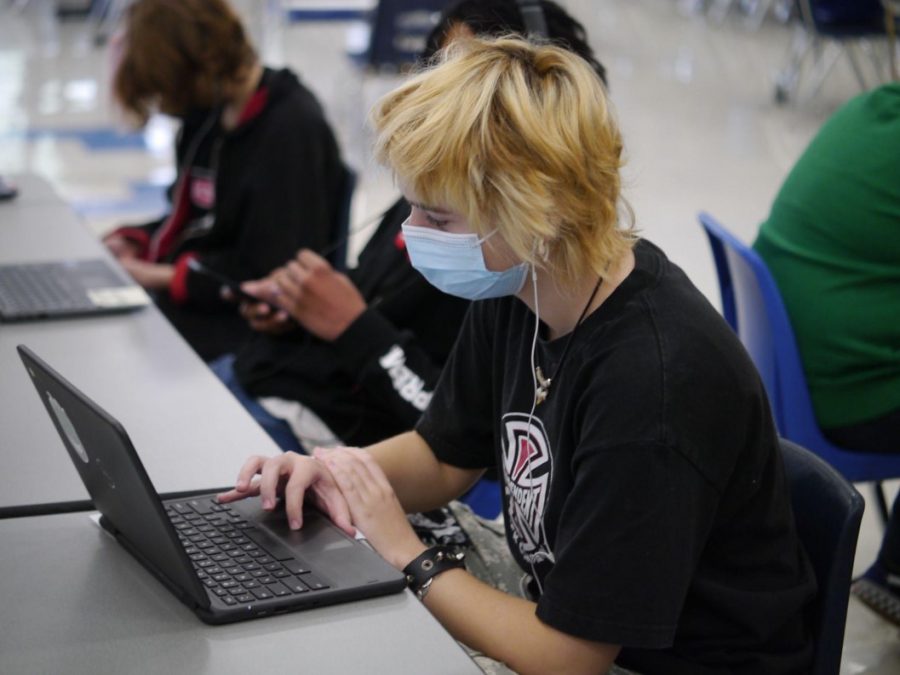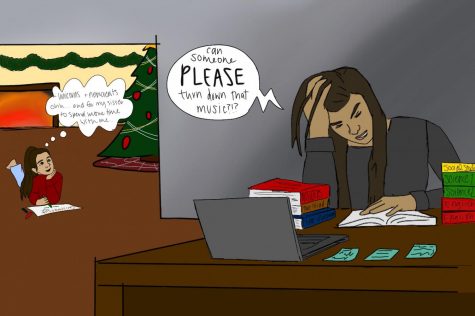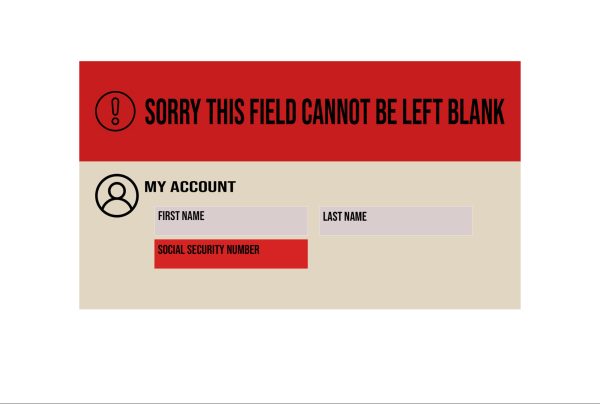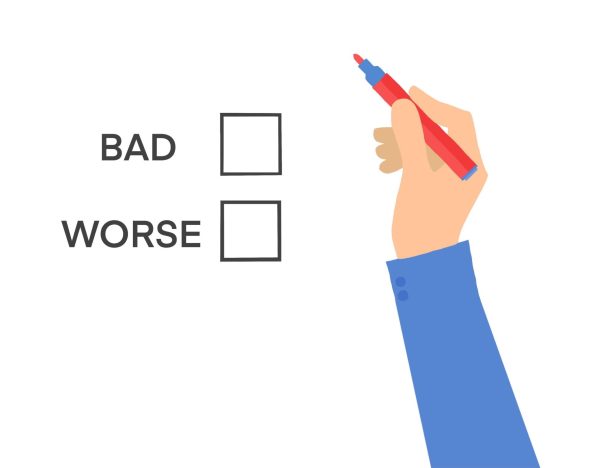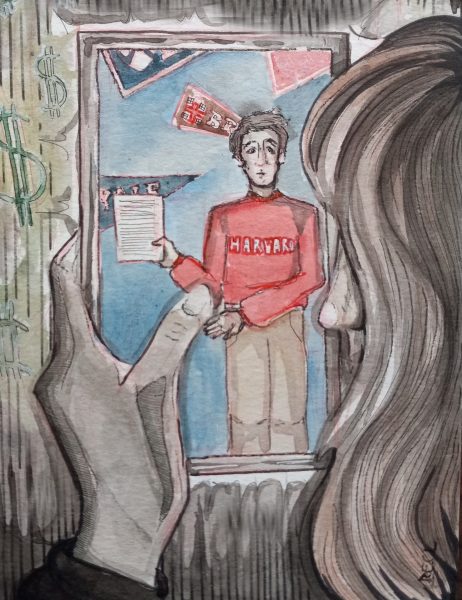The Knightmare before Christmas
Exam exemption polices are confusing, unfair to AP/OnRamps students and upperclassmen
Will Sims studies for finals in the cafeteria on the Monday before finals, which was a C day. Many teachers gave their classes time to study during the shorter class periods. Fellow Knight Piper Hicks told MacJ that she “usually prefers the project finals for my main classes and then the test finals for my electives.” Both columnists for this article, however, said it is far more likely that they will have difficult tests for their core Advanced Placement classes and doable projects for the elective classes, which are the only finals they can consider exempting.
December 22, 2021
For many students, finals week is one of the most stressful and yet crucial weeks of the school year as these exams determine 20% of a student’s semester grade. Previously, finals accounted for 25% of a student’s semester grade, with the other 75% split among three grading periods. Now two grading periods make up the remaining 80% of the semester average.
With deadlines, tests, and due dates piling up one after the other, the workload can be unmanageable and overwhelming.
Last year, McCallum implemented a final exam waiver policy, similar to that of other high schools like Anderson and Austin High. The goal of this change was to give students already burdened by online learning a little more breathing room. The policy carried over to this school year, giving students of all grade levels the opportunity to opt-out of a varying number of final exams.
It is unfair that students with less on their plates academically are benefiting from the inclusion of the waivers, while AP students are not getting cut a much-needed break for their mental health.
However, with the varying amount of restrictions (dependent on each individual student), the policy is less helpful than it at first appeared. The supposedly helpful waivers are confusing and unclear for many, it forces another decision on anxiety-ridden students, and is unfair to students in AP classes, which includes a high proportion of upperclassmen.
In order to waive an exam, a student must be passing the class with a 70 or higher and have at least 90% attendance in that specific course. After that, it becomes slightly more complicated.
Freshmen may only exempt a maximum of one exam per semester. Sophomores can exempt up to two, but only one core class. Juniors can exempt up to three, but only two core classes, and seniors can waive four with a maximum of three core classes the first semester and have the choice to opt-out of all of their exams in the spring semester.
Part of the policy is that students cannot waive the exam for the same course in both semesters, so for AP courses, there is an added restriction. Since McCallum teachers automatically waive students in AP classes from spring semester exams because of the AP tests also in the spring, AP students cannot exempt final semester exams from AP classes. This disproportionately affects upperclassmen, who often take several AP courses and are already busy with college prep and applications.
This rule in particular is shocking. AP classes are some of the most rigorous classes offered to high school students. To disregard the hard work of these students, many of whom are in multiple AP classes, is unfair and eliminates the element of choice and opportunity for less work brought by exam waivers.
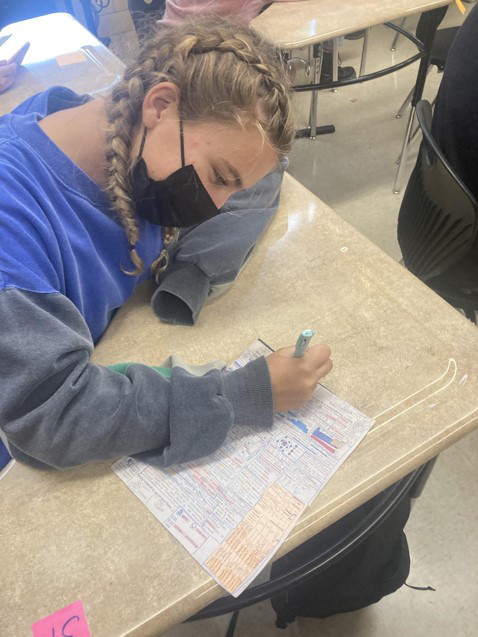
We both understand from personal experience the undue finals burden of students opting to take Advanced Placement and other advanced course work.
FRANCIE: I only have two electives that are not AP. As a sophomore, I can only waive one core class and one elective. So I will most likely end up taking several demanding exams and opting out of a small project that would be an easy A. It doesn’t make sense to force students to take several difficult tests with the illusion that they can waive them until the last second when they review the waiver policy.
AMAYA: As a junior, I am enrolled in many AP and OnRamps classes that are not eligible for exemption. This leaves me with highly limited options for the use of my waivers. My only core class eligible for a final waiver is precalculus. This leaves another heavy decision on my shoulders: should I waive it this semester when I’ll have several other finals from advanced courses or do I use it when I’ll be burdened with AP testing during the spring semester?
As far as electives, the waivers still prove ineffective as I can only waive classes like art that don’t have a traditional final that is worth the use of an exemption. As upperclassmen, we face very challenging courses with copious amounts of work. I feel that finals have the ability to make or break you and the final waivers are frustrating as they seem to ease the stress off students who are not involved in more rigorous courses. Combined with the stress of overall academic performance and college prep, upperclassmen face a nearly impossible dilemma. It is unfair that students with less on their plates academically are benefiting from the inclusion of the waivers, while AP students are not getting cut a much-needed break for their mental health.
The waiver rules eliminate the element of choice; all the tests you didn’t want to and were at first promised you wouldn’t have to take, are suddenly required.
For upperclassmen who tend to take multiple AP classes, this is even more of an issue. The increased number of exams to opt out of as grade level increases can mean nothing to them as so many of their classes cannot be applied to this in the fall semester. The waiver rules eliminate the element of choice; all the tests you didn’t want to and were at first promised you wouldn’t have to take, are suddenly required.
The argument in favor of these policies, by both teachers and administrators, is that mandatory fall finals in AP classes allow teachers to give mock AP exams and give students a benchmark of where they are with the content. Although the exams are preparation they still determine 20% of student’s fall semester grade in that class, so the stakes are still high
While I believe that this is a valid benefit of AP fall finals, ultimately I think this should be a decision that falls on students. Students in AP or OnRamps courses are capable and self-aware; choosing to take advantage of the benefits should be up to them. If they feel added fall finals would cause them more stress, then they can make their decision based on their personal situation.
The inclusion of final waivers are supposedly in place to provide support and stress relief for Mac students, however, its policies’ nullify the sole purpose of the waivers. Its excessive restrictions essentially make the waivers void for upperclassmen.



